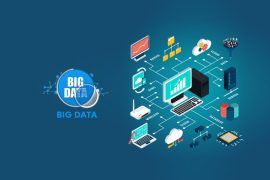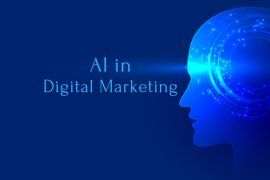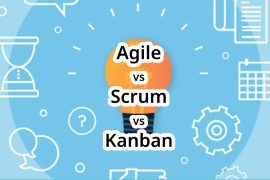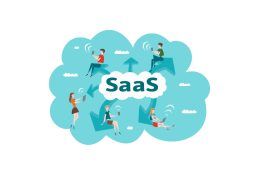While CRM applications and software for managing marketing could seem similar, they have two distinct functions. Therefore, it’s essential to precisely comprehend the goals each software is trying to accomplish and how integrating these tools will help your business. Many companies often misinterpret CRM & marketing automation tools since both allow you to connect with customers and establish connections. The main difference is how each tool aids you in satisfying specific customer requirements and establishing relationships with your customers throughout the buying process.
A CRM is generally focused on sales, while the marketing automation software is specifically designed for marketing. This article is written for small-business managers and owners who wish to understand the differences between marketing automation and CRM software. That’s why we’ve made the differences between CRM vs. Marketing Automation on the market in 2022. Let’s get started.
Table of Contents
What exactly is CRM & Marketing Automation?

According to a study released by Invespcro, marketing automation software can help you increase your sales efficiency by up to 14.5% and reduce your marketing costs by 12.2%. Another study by HubSpot discovered that more than 60% of leaders perform well-utilized CRM to automatize processes instead of 46% of those underperforming. The advantages of CRM and MA are indisputable. But even though both kinds of software excel in their respective fields, many companies are confused by the differences between marketing automation and CRM. That’s why we’re here to clear it up for you.
What is CRM?
CRM software, also known as CRM, handles sales and contact management, the productivity of agents, and customer relationships throughout every step of sales, including customer care to marketing. CRMs also keep details about your customers, like how long they’ve been a client, purchases, and notes about conversations on the phone. A CRM is a tool to improve your customer interaction, improve the number of sales and satisfaction levels, and also streamline your processes.
CRM is designed primarily for salespeople. It records all relevant details about prospects and customers, tracks interactions and customer service issues, identifies opportunities for sales, and makes information accessible to any person within the organization who requires it. Because it can be integrated with other sales and marketing software, the CRM system can provide you with customers’ information about your business order history and the comments or likes they leave on social media platforms. The most sophisticated CRM software may also gather data from customers and leads through various channels, including social media, websites, email, etc. Other CRM systems can also provide analytical capabilities, combining data into reports that are ready for use by an organization. An effective CRM database can file necessary documents, schedule meetings, and coordinate sales team processes.
It also makes managing and maintaining connections with existing customers in your database more accessible. To better understand CRM use across different businesses, 91% of the companies that employ ten or more people use CRM.
The purpose of a CRM system is:
- Increase ability to focus on profitable customers
- Increase the efficiency of sales forces and increase their efficiency
- Improve pricing, improve customer service
- Create products and services that are centered around the customer
- All channels and customers can be connected to the same platform
What is Marketing Automation?
Marketing automation is a method of streamlining, analyzing, and automating key marketing activities and workflows, such as segmentation and lead generation, nurturing and capturing relationship marketing, customer retention, and account-based advertising. Marketing automation accelerates processes, reduces tedious tasks, and designs customized, targeted marketing programs to deliver to your clients.
The principal function of software for marketing automation is to assist your marketing team in creating and nurturing leads. And keep tips in the loop, that is, those who show curiosity about your product or service. Different platforms for marketing automation depend on the marketing process you would like to automatize. Marketing automation generates qualified leads (MQLs) that your sales team can further look into. Marketing automation can help you track how your customers use your site and which products get the most attention and deliver automated follow-up messages to your customers.
In addition, they can also evaluate the total ROI of campaigns. Automation in marketing is a device that will make it easier to save time and money as it allows you to take your market’s pulse. Software for marketing automation, such as email marketing tools, allows the management of your contacts database by creating groups and lists. It can be used as a mini-CRM to organize your contacts according to their engagement level and their identity:
- Customers
- Blog subscribers
- Trial users
- Lead magnet downloaders.
- Visiting your website
- Reading your blog
- Downloading your e-book
- Filling out a form
- Scheduling a demo
- Opening your emails
What is the Difference Between CRM & Marketing Automation? Which one is better?
While the terms customer relation management (CRM) and marketing automation software might appear identical, they serve distinct functions and perform different tasks like;
- Customer Relationship Management (CRM) and marketing automation applications have different functions.
- Utilizing the platforms together allows easy access to central information, which leads to duplicates or accidental tasks. Therefore, you must keep an eye on the systems to ensure there are no specific data that could cause confusion for customers and could lead to problems with compliance.
- The integration of the two systems may require some changes to your strategy. You must create and implement a plan to determine, execute and implement changes to your sales and marketing initiatives, making them more efficient and cost-effective.
- Many CRMs allow you to connect to social media outlets. This will enable you to see which social networks drive the most traffic and what your customers say about your company online. These CRMs are also known as SCRM (Social Customer Relations Management).
- Integrating your marketing automation and CRM software could improve your company’s capabilities and enhance customer satisfaction.
Choosing Between a CRM System vs. Marketing Automation Software?
Many people are focused on the differences between marketing automation and CRM; however, the truth is that both are essential for growing your company. Marketing automation and CRM should work together to generate leads and turn leads into paying customers. Certain companies highlight the differences between marketing automation and CRM because some businesses need one greater than another. You’ll want marketing automation if your business has a tiny marketing department. If you’re experiencing difficulties managing customer data, It’s best to go with CRM.
CRM and marketing automation should be integrated into a single tool in the ideal scenario. Instead of focusing on these two technologies as separate, some companies have started integrating marketing automation functions into their CRM platforms.
This allows marketing and sales departments to work together on a single platform. This will help your company save money and time over the long term.
Benefits of choosing a CRM Software and its basic capabilities
Are you using a CRM? If you’re not, here are a few reasons why you should consider making use of one today:
- Excellent organization of your contacts. CRM is the best choice to ensure that you are in good order for your contact list. It allows you to classify your customers according to their records and organize them in various ways to make it easier to find them. CRM is a godsend, thanks to these options for email marketing.
- You can speak to your customers via various phone, email, IM, social media, and forums. Your sales team will be able to provide convenience to its customers, which can go a long way in converting leads into sales.
- The software aims to establish and develop relationships with current and prospective customers.
- CRMs focus on leads in the middle or at the bottom of the funnel – either sales-qualified leads or marketing-qualified leads.
- It provides insight into how customers interact with your brand and allows you to pinpoint areas to improve.
Benefits of choosing a Marketing Automation Software and its basic capabilities
Why is marketing automation essential to your company? Here are a few main reasons:
- Create more effective marketing campaigns. If you’ve got a better comprehension of your customers, you’ll be able to design better marketing campaigns that connect with your clients.
- Develop higher-quality lead sources for the sales staff. Low-quality leads are an unnecessary waste of time and cash. Marketing automation can help generate quality leads that give you and your salespeople a better chance of boosting your business’s bottom-line profits.
- The main goal of the solution is to create leads and customers through various marketing strategies.
- Marketing Automation is targeted at people in the middle of the top of the funnel – people who visit websites and email subscribers, lead trials, etc.
- These tools provide insights into how your marketing strategies are performing, allowing you to identify areas to improve.
How to make CRM & Marketing Automation Tools work together?
Both types of software are more effective when they are used in conjunction. By mixing CRM with marketing automation, you can maximize the power of each software’s capabilities and alter how you interact and communicate with clients. Here are some examples:
- Incorporating all the necessary information and actions to streamline and organize your business’s prospecting and retention processes.
- Capturing deeper customer journey information that marketing and sales use to prioritize their actions.
- It streamlines your sales efforts as sales and marketing teams can consolidate critical information to concentrate on high-quality leads.
- Reducing the amount of wasted time and valuable resources on the lead is not a good fit.
Communications for marketing and sales with customers and potential clients often utilize different languages or try to address specific issues. Integrating marketing automation and CRM increases visibility and ensures the consistency of messages targeted to different groups and individuals. If you update or alter your communication, the two teams can review the changes and adjust according to the need.
Conclusion
Marketing automation and CRMs are part of the same field; however, they are two different things. While CRMs focus primarily on the sales side of the company, marketing automation tools focus on marketing-related activities at the top of the funnel. Marketing automation refers to programs that enhance and monitor the efficiency of marketing processes and perform routine tasks. CRM is a sales and contact management program for potential and current clients and customer relations.
While both are helpful marketing tools that help prevent gaps through the sales channel, companies seeking to increase sales and maximize the process should use both. Both are beneficial in their respective ways and can be helpful for companies of all sizes and shapes and sizes, whether they are working in conjunction or on their own.






